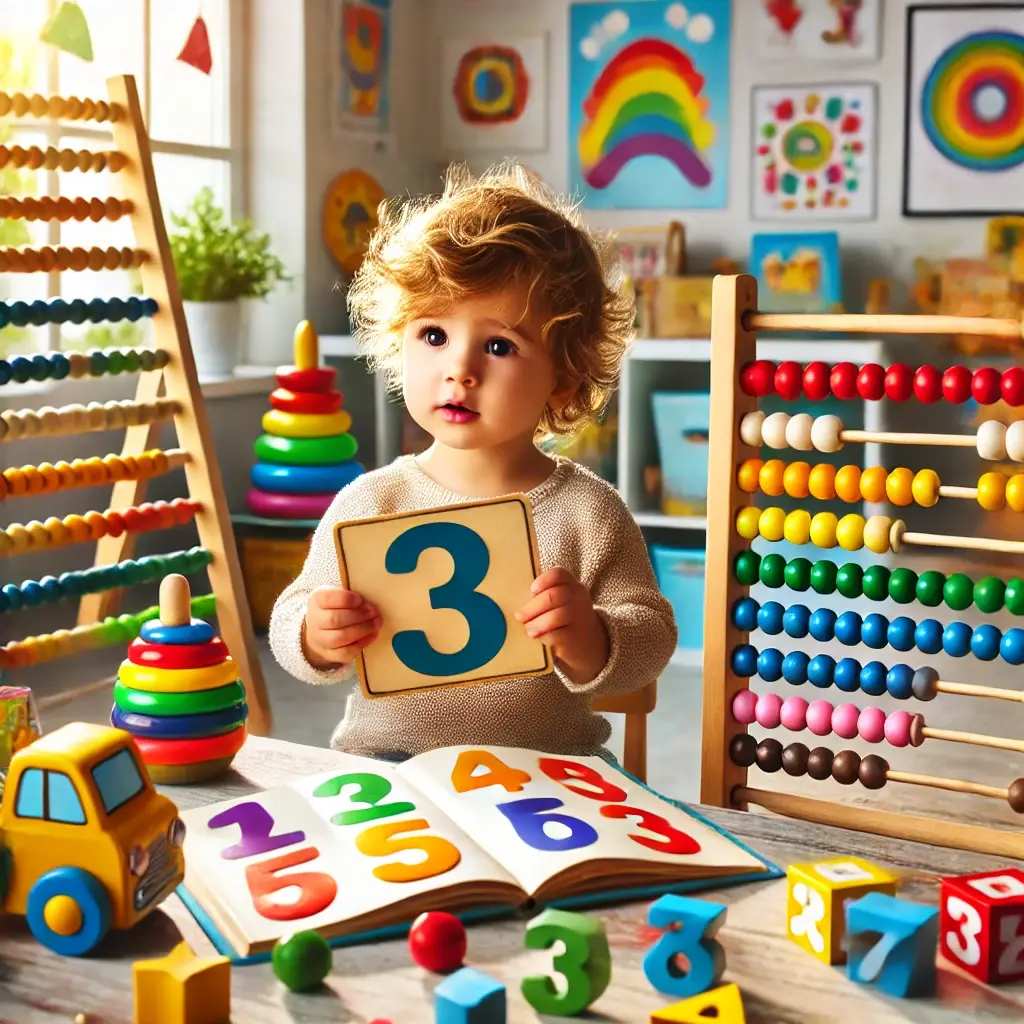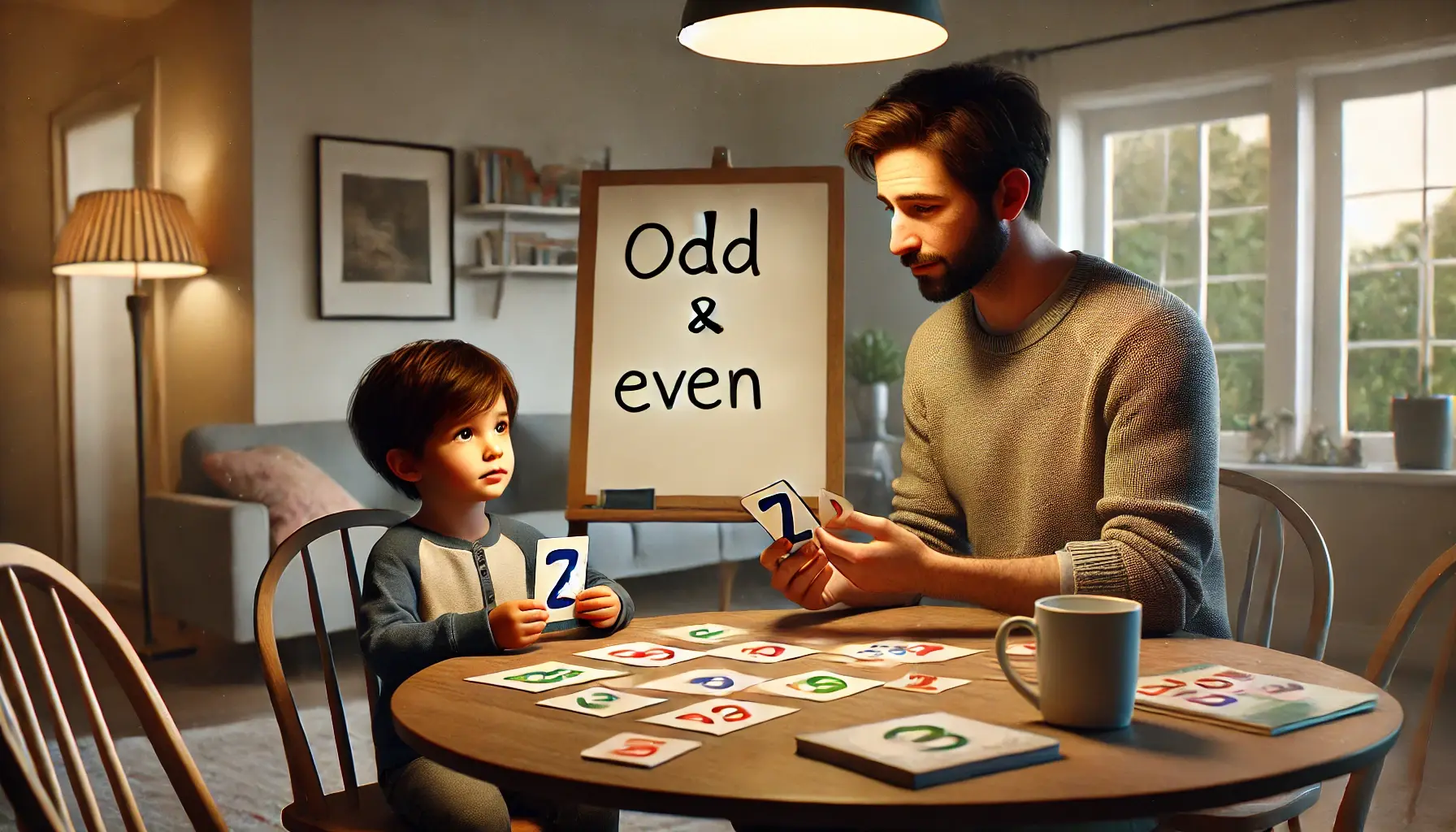
We've all heard it before: math is essential for academic success and everyday life. Introducing math education in kindergarten is crucial in laying the groundwork for future academic achievement. Starting early helps engrain these core concepts in young minds. As a parent, you play a vital role in encouraging and guiding your child as they explore fundamental math concepts. In this article, we'll discuss essential math concepts for kindergarteners, offer tips on supporting your child, suggest engaging activities, provide additional resources, and address common challenges along with ways to overcome them.
Key Math Concepts for Kindergarteners
Teaching children fundamental math concepts in kindergarten sets a strong foundation for understanding more complex math as they progress. Concepts such as counting, recognizing numbers, basic addition and subtraction, understanding shapes, and identifying patterns are all within reach for kindergartners. These foundational skills are the building blocks for more sophisticated mathematical ideas. Understanding numbers and basic operations lays the groundwork for arithmetic while recognizing shapes and patterns prepares children for geometry and algebra. Furthermore, these concepts have practical real-world applications:
- Counting and Numbers: Utilized in daily activities like counting money or measuring ingredients.
- Addition and Subtraction: Essential for managing finances, shopping, and problem-solving.
- Shapes: Important for understanding the physical world and useful in fields like architecture and design.
- Patterns: Present in music, art, and natural phenomena, fostering critical thinking and creativity.
By solidifying these skills in kindergarten, children are better prepared to tackle the challenges of advanced math and real-world problem-solving. These early concepts form a crucial framework that supports lifelong learning and cognitive development.
Tips for Supporting Math Learning in Kindergarten
1. Engage in Hands-On Activities
Keeping kids engaged and excited about learning is key, and one of the best ways to achieve this is through tactile, hands-on activities. By counting blocks, sorting shapes, or handling money, children can learn basic math concepts in a practical way. Everyday materials are perfect for making math learning tangible and relatable, such as:
- Counting Objects: Use buttons, coins, beans, or pasta to practice counting.
- Measuring Tools: Employ rulers, measuring tapes, cups, and spoons for lessons in measurement.
- Building Blocks: LEGOs or wooden blocks can introduce basic geometry.
- Playing Cards: Select games that require addition or subtraction.
- Money: Practice counting coins and bills for real-world application.
These materials can effectively teach basic arithmetic, length/volume, and even geometry in a fun, interactive manner.
2. Integrate Math into Daily Routines
Beyond using everyday materials, incorporating math learning into daily activities is crucial. For example, when making a grocery list, have your child count the items or assist with paying the cashier. Or even when setting the table with the correct number of bowls, plates, forks, and spoons. For instance, when setting the table, you can ask your child, “If we need one fork and spoon per person and there are four people, how many forks and spoons do we need?” This not only teaches patterns but also fosters responsibility. Sorting laundry by color or shape or measuring ingredients in the kitchen are other practical ways to reinforce math skills. These activities help children naturally grasp counting, measuring, and understanding quantities, transforming everyday tasks into valuable teaching moments. Embrace the opportunities around you to integrate math into your daily routine seamlessly.
3. Encourage Play-Based Learning
At this stage in your child’s life, the world is a playground, making play-based learning an incredibly effective approach. Math-focused toys, games, and apps can promote problem-solving and critical thinking. Here are some math-focused toys and physical games:
- LEGO and Building Blocks: Encourage spatial awareness and geometry skills and promote counting, symmetry, and pattern recognition.
- Tangrams: Develop geometry skills and spatial reasoning through puzzle-solving.
- Abacus: Offers a fun, hands-on tool for understanding place value, addition, subtraction, multiplication, and division.
In addition to physical toys, digital games, and apps can be highly beneficial:
- Prodigy Math
- DragonBox Series
- Monster Math
- Mathseeds
These toys, games, and apps make math relatable and provide opportunities for your child to explore and learn at their own pace, helping to build a strong mathematical foundation. Remember, math learning can and should be fun—we want our kids to love learning math!
4. Explore Patterns and Sequences
Recognizing and creating patterns and sequences is fundamental to developing mathematical thinking in young children. These skills help children understand order, predictability, and relationships between different items or events—core concepts in mathematics. Patterns and sequences also enhance problem-solving skills and foster critical thinking by enabling children to make connections and predictions.
Here are some activities to develop these skills:
- Color Patterns: Practice bead stringing and sorting LEGO pieces in repeating patterns.
- Shape Patterns: Use stamps or cut-out shapes to create patterns or puzzles with different geometric designs.
- Sound Patterns: Have your child practice clapping, tapping, and snapping in rhythmic patterns to better understand sequences.
Incorporating these activities into your child's routine can make math tangible, fostering an understanding and appreciation for the subject.
5. Incorporate Math in Storytime
Reading books with math themes can be a powerful tool for introducing and reinforcing math concepts to your child. Stories provide context and narratives that make abstract concepts more tangible, helping kids understand how math applies to real-world situations. The narrative details and imaginative aspects of stories capture children's attention, enhancing engagement. Additionally, stories often contain elements of problem-solving through conflicts, encouraging children to think critically and develop their problem-solving skills. Here are some recommended books and how they can be effective:
- "The Grapes of Math" by Greg Tang
- Concepts: Problem-solving, addition, and grouping
- "Math Curse" by Jon Scieszka and Lane Smith
- Concepts: Problem-solving, everyday math
- "One Grain of Rice: A Mathematical Folktale" by Demi
- Concepts: Doubling, exponential growth
- "Sir Cumference" series by Cindy Neuschwander
- Concepts: Geometry, measurement
- "The Doorbell Rang" by Pat Hutchins
- Concepts: Division, sharing
By integrating math concepts into engaging stories, these books can help children develop a deeper understanding and appreciation for mathematics, reinforcing learning in an enjoyable way.
Activities to Reinforce Math Learning
There are numerous activities out there to reinforce math learning, and below is a list of educational activities that can be easily done at home:
- Number Hunt: Organize a scavenger hunt where children find and count items, enhancing their number recognition skills.
- Shape Sorting: Using blocks or cutouts to sort shapes reinforces geometry basics.
- Cooking with Math: Involve your children in cooking to teach measurements and fractions practically. Cooking and baking can teach your child about measurements, volume, and length.
- Pattern Building: Use beads or stickers to create patterns, helping your child recognize and predict sequences.
These activities reinforce math concepts and make learning fun and relatable, fostering a positive attitude toward mathematics.
Math Learning Resources for Parents and Educators
We've covered a lot of activities and games you can do at home, but there are endless online and physical resources available to help you support your child's math learning journey. These resources include educational websites, apps, printable worksheets, math manipulatives, educational kits/books, and Genie Academy.
Free Online Tools and Websites:
- Coolmath4Kids
- Math Playground
- IXL Math
Educational Apps:
- Prodigy Math Game
- Moose Math
Printable Worksheets:
- Education.com
- K5 Learning
Physical Resources:
- Math Manipulatives: Cuisenaire Rods, Base Ten Blocks, and Pattern Blocks
- Educational Kits: LEGO bricks
- Books: Math-themed storybooks like "The Grapes of Math" and "Sir Cumference."
Personalized Support:
- Genie Academy: For parents seeking structured guidance and support, Genie Academy offers invaluable resources with customized learning plans to meet individual students’ needs. Genie Academy provides math tutoring for kindergarteners focusing on number recognition, counting, and simple problem-solving. In addition, Genie offers abacus math training to improve children’s mental math skills. Feel free to contact us to learn more about how we can assist your child in their math journey.
Common Challenges and How to Overcome Them
Kindergarteners are at a critical stage as they develop foundational math skills. However, they may face several challenges with new concepts. Here are some common challenges:
- Understanding Abstract Concepts: Use visual aids like blocks and beads to make abstract concepts more tangible.
- Limited Attention Span: Focus on short, frequent lessons and fun activities to grab your child's attention.
- Lack of Confidence: Foster an environment where your child feels comfortable asking questions and making mistakes. Praise their effort and persistence to build a growth mindset.
By addressing these challenges with creative and supportive solutions, educators and parents can help kindergarteners develop a positive relationship with math, laying a strong foundation for future learning.
Conclusion
I know it feels like a lot of information, but don't worry; learning math is a journey. Every child learns differently and at their own pace. To build a strong foundation, the key is to keep math learning consistent and integrated into daily life. Celebrate the small wins to motivate your child and remind them that learning is a journey where effort leads to success.
In this article, we discussed the importance of kindergarten math concepts, offered tips, activities, and additional resources, and highlighted common challenges with ways to overcome them. If your child is ever struggling, seek additional support through Genie Academy, which provides customized lesson plans to meet your child's needs. Genie Academy is here to help you unlock your child's genius.





